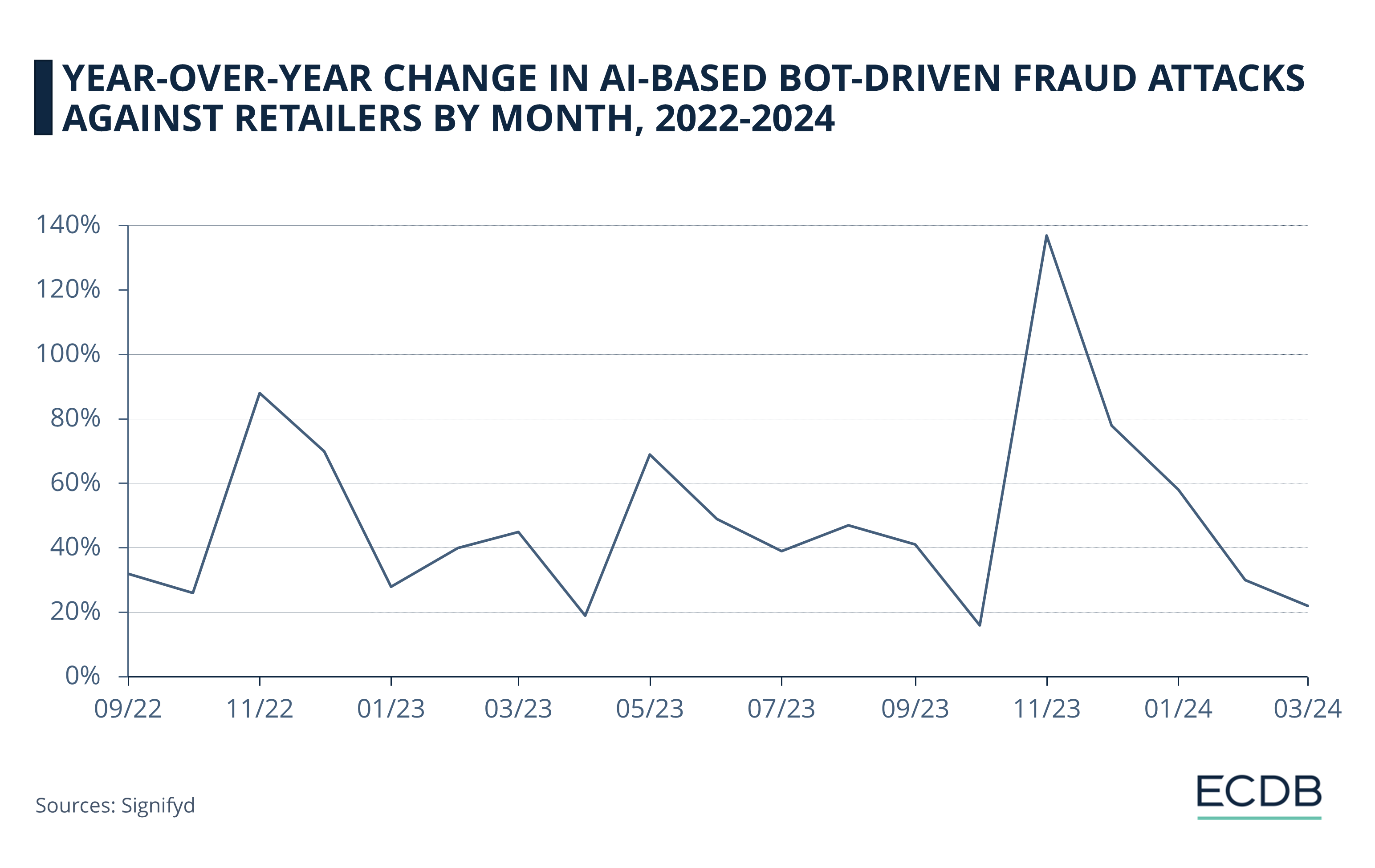eCommerce: Scams & Fraud
How to Avoid Online Shopping Scams Ahead of the Holiday Season
Stay safe from online shopping scams this holiday season by verifying website legitimacy, avoiding public Wi-Fi, and using secure payment methods like Apple Pay or two-factor authentication.
Article by Cihan Uzunoglu | October 16, 2024Download
Coming soon
Share

How to Shop Online Safely: Key Insights
Watch for Fake Websites: Fake websites are now the most successful type of online fraud, with 84% of people targeted engaging and 47% losing money, so always verify a site’s legitimacy before making a purchase.
Protect Your Personal Data: Avoid shopping on public Wi-Fi, use secure networks, and employ two-factor authentication and payment services like Apple Pay to minimize the risk of hackers accessing your personal information.
As the holiday season approaches, online shopping scams are on the rise, with fake Commerce websites emerging as the most successful form of online fraud.
A report found that 84% of people targeted by fake shopping websites engaged with them, and nearly half (47%) of these individuals ended up losing money. With American consumers losing an average of US$1,500 in holiday shopping scams last year, staying vigilant is more important than ever.
Watch for Red Flags
Scammers are using increasingly sophisticated tactics, creating fake websites that closely mimic legitimate retailers. The Better Business Bureau (BBB) emphasizes that a professional-looking website doesn't guarantee it's authentic.
More Insights? We keep our rankings up to date with the latest data, offering you valuable information to improve your business. Want to know which stores and companies are leading the way in eCommerce? Which categories are achieving the highest sales? Check out our rankings for companies, stores, and marketplaces. Stay one step ahead with ECDB.
In fact, 82% of people targeted in online shopping scams reported losing money. To protect yourself, verify a retailer's reputation by checking for reviews or complaints, and always ensure the URL starts with "https" to confirm the site is secure.

With artificial intelligence (AI) making fake websites more realistic than ever, scammers are also employing new tactics like “brushing” scams, where consumers receive packages they never ordered. This allows scammers to create fake reviews using your real information. Additionally, QR codes in unsolicited packages can lead to phishing websites that steal personal data.
Privacy is Key for Shopping Online Safely
Experts also warn against using public Wi-Fi for online purchases, as it exposes personal information to hackers. Instead, shop on secure networks, and avoid clicking on links from unsolicited emails or texts, which are often phishing attempts designed to steal sensitive data.
To stay safe, experts recommend using two-factor authentication and payment services like Apple Pay or Google Pay for added security. With scams becoming more sophisticated and frequent, taking these precautions can help you avoid falling victim to online fraud this holiday season.
Sources: WSPA, Yahoo! Finance, Stanford Center on Longevity, Finra Investor Education Foundation, BBB Institute for Marketplace Trust, ECDB

Click here for
more relevant insights from
our partner Mastercard.
Related insights
Deep Dive
Next Generation eCommerce: Key Trends Shaping the New Age of Online Retail
Next Generation eCommerce: Key Trends Shaping the New Age of Online Retail
Deep Dive
Google's AI Project Jarvis Could Change Online Shopping
Google's AI Project Jarvis Could Change Online Shopping
Deep Dive
FTC’s New Ban in Effect & How to Spot Fake Reviews in Online Shopping
FTC’s New Ban in Effect & How to Spot Fake Reviews in Online Shopping
Deep Dive
Artificial Intelligence in Italy eCommerce: Consumer Behavior & Preferences
Artificial Intelligence in Italy eCommerce: Consumer Behavior & Preferences
Deep Dive
Amazon’s New AI Assistant Project Amelia Will Support Third-Party Sellers
Amazon’s New AI Assistant Project Amelia Will Support Third-Party Sellers
Back to main topics
